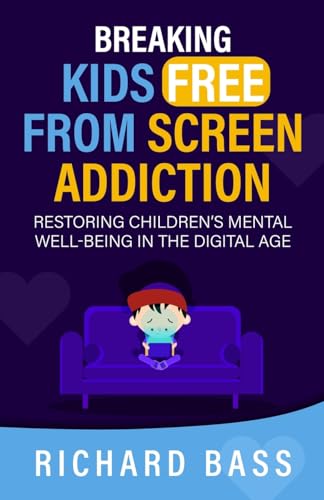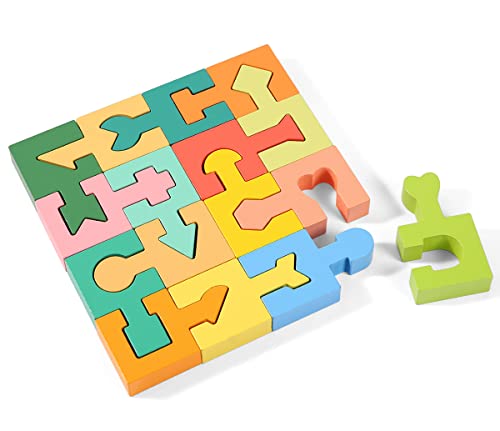Understanding Brain Development
Brain Development in Kids begins during prenatal stages and continues into early childhood. These critical phases lay the foundation for cognitive abilities that influence learning outcomes. Key milestones at distinct stages are essential for shaping functions like memory, attention, and problem-solving skills.
The initial stage begins in the womb, where the human brain starts to form around the third week of gestation. By the end of the first trimester, the basic structures are established, and neural pathways begin to connect. During this prenatal period, the expectant mother must maintain a healthy environment, as factors like nutrition, stress, and exposure to toxins can significantly affect the developing brain.
After birth, Brain Development in Kids continues at a remarkable pace. Approximately 90% of a child’s brain growth occurs in the first few years, laying the foundation for future learning. During early childhood, the brain is highly adaptable, a phenomenon known as neuroplasticity. This adaptability allows children to acquire language, social skills, and critical thinking abilities rapidly. Significant milestones, such as reaching for objects, speaking their first words, and beginning to engage in pretend play, demonstrate cognitive and motor skill advancements.
Critical periods also define the timeline for Brain Development in Kids. These windows of opportunity are times when the brain is particularly receptive to specific types of learning. For instance, language acquisition is most effective during early childhood, where exposure to language-rich environments plays a crucial role in development. Understanding these stages and milestones is essential for parents and educators to support healthy brain development, fostering an environment that nurtures critical cognitive abilities and successful learning outcomes.
The Role of Nutrition in Brain Development

The significance of nutrition in the Brain Development in Kids cannot be overstated. A well-nourished brain is essential for optimal cognitive functioning, learning, and overall mental health. Several vital nutrients are pivotal in ensuring healthy brain growth, including omega-3 fatty acids, vitamins, and minerals. These components are critical not just during infancy but throughout childhood, a period characterized by rapid growth and development.
Omega-3 fatty acids found abundantly in fish, nuts, and seeds, are particularly crucial. They contribute to the formation and maintenance of cell membranes in the brain and are known to support neuroplasticity, a critical process for learning and memory. Research indicates that children with sufficient omega-3 intake tend to have better cognitive performance and emotional well-being. This highlights the indispensable role of these fatty acids in fostering an environment conducive to learning.
Vitamins, especially B-complex vitamins, as well as vitamins C and D, are also essential for brain health. They assist in energy production, neurotransmitter synthesis, and antioxidant protection, all of which are necessary for maintaining robust cognitive functions. Minerals such as iron, zinc, and magnesium are equally important, as they contribute to various neurological functions and support Brain Development in Kids during significant growth phases.
Conversely, malnutrition can severely impact brain function. Deficiencies in critical nutrients can lead to cognitive delays, behavioral issues, and reduced academic performance. For instance, inadequate iron levels in children can lead to decreased cognitive abilities and poorer concentration, significantly hindering their learning process. Thus, ensuring a balanced diet rich in these essential nutrients is fundamental to fostering healthy brain development in children, facilitating better learning outcomes throughout their formative years.
Impact of Physical Activity on Brain Health

Physical activity plays a crucial role in promoting healthy Brain Development in Kids. Engaging in regular exercise not only contributes to physical fitness but also significantly impacts cognitive functioning and emotional well-being. Research indicates that children who partake in consistent physical activity exhibit improved attention spans, enhanced memory capabilities, and better problem-solving skills. These cognitive benefits are rooted in the physiological changes that occur within the brain during and after exercise.
When children exercise, their bodies release a range of neurochemicals, such as endorphins and serotonin, which are linked to improved mood and reduced feelings of anxiety. This boost in mood can help foster a more conducive environment for learning, as children are more likely to engage positively with educational material when they feel emotionally balanced. Additionally, aerobic activities—such as running, swimming, and cycling—have been shown to increase the production of brain-derived neurotrophic factor (BDNF), a protein that supports neuron growth and enhances synaptic plasticity, critical elements in the learning process.
- 【Jump Rope with Counter】 The upgraded multifun jump rope with counter provides the most convenient cardio exercise with …
- 【Durable & Adjustable】The jump rope counter adopts 2.8m/9FT solid core PVC rope that is durable and non-tangling, which …
- 【Smooth & Fast】Featuring premium 360-degree ball bearings, our jumping rope provides stable, fast, and tangle-free rotat…
- Pack of 4 Sports Balls with 1 Pump: Includes 1 each of 5-inch Soccer Ball, 5-inch Basketball, 5-inch Playground Ball, an…
- Ball weight of each is 120 grams. Balls are soft to catch and easy to grip, perfect for age group of 3 to 6 yrs. Ball ar…
- Balls are made from durable PVC. They are NOT foam balls and come without foam layer/padding.
- [Package contains] This Senston racket set for badminton provides all you need to play badminton with family. This badmi…
- [Ideal for Beginners] These rackets are very for those who are beginners to the game or simply want to have some casual …
- [Solid Construction] Our rackets are constructed from a one-piece design with an integrated T-joint for optimal stabilit…
Incorporating physical activity into daily routines can be straightforward. Parents and educators can encourage children to participate in organized sports, engage in outdoor play, or join classes that promote movement, such as dance or martial arts. Simple activities like walking to school, playing tag during recess, or biking around the neighborhood can effectively contribute to a child’s overall physical activity levels. It is essential to ensure that exercise is enjoyable, as this increases the likelihood of sustained participation. By emphasizing the enjoyment aspect of physical activity, children are more likely to develop lifelong habits that benefit their brain health and cognitive abilities.
Importance of Sleep for Cognitive Development

Sleep plays a crucial role in the cognitive Brain Development of Kids, significantly influencing their learning capabilities and overall brain function. During sleep, particularly in the rapid eye movement (REM) stage, the brain engages in essential processes that facilitate memory consolidation. This process helps children retain and recall information learned during the day, making sufficient sleep a fundamental aspect of their academic success. When children do not get the recommended amount of sleep, they may struggle with problem-solving, creativity, and attention span, impairing their ability to learn effectively.
In addition to memory, sleep is vital for emotional regulation in children. A well-rested child is better equipped to handle stress, express emotions appropriately, and respond to social situations with emotional intelligence. Insufficient sleep can lead to irritability, mood swings, and difficulties in social interactions, which can further affect academic performance and peer relationships. This emotional well-being is an integral part of a child’s overall cognitive development and learning journey.
To ensure children receive the necessary sleep for optimum cognitive function, it is essential to establish healthy sleep routines. Setting a consistent bedtime and wake time can help regulate the body’s internal clock, making it easier for children to fall asleep and wake up. Creating a calming bedtime environment—free from screens and distractions—can also encourage better sleep quality. Parents and caregivers should aim for age-appropriate sleep durations, ensuring that preschoolers receive approximately 10-13 hours, while school-aged children should get about 9-11 hours of sleep each night. Caregivers can significantly enhance their child’s cognitive development and learning readiness by prioritizing sleep and fostering healthy habits.
Social Interactions and Learning

Social interactions are a critical component of healthy brain development in children. These interactions encompass various forms of engagement, including play, communication, and relationships with peers and caregivers. Each of these elements plays a significant role in fostering essential cognitive skills and emotional intelligence, which are fundamental for effective learning.
Play is particularly vital, as it allows children to explore their environment and engage with others in a dynamic setting. Through play, children learn to navigate social norms, develop problem-solving skills, and enhance their creativity. For instance, collaborative play activities encourage teamwork and communication, invaluable skills not just in childhood, but throughout life. Moreover, these interactions serve as a framework through which children can practice empathy and learn to manage their emotions, thus contributing to their overall emotional intelligence.
Furthermore, relationships with caregivers and peers significantly influence a child’s resilience. Supportive caregivers who provide a stable and encouraging environment allow children to build confidence and self-worth. This foundation enables children to face challenges more effectively, as they feel secure in their relationships and capable of seeking assistance when needed. Conversely, a lack of positive social interactions can lead to feelings of isolation or anxiety, which may hinder cognitive development and emotional well-being.
Communication, both verbal and non-verbal, is another essential aspect of social interaction. Engaging in conversations helps children expand their vocabulary, understand different perspectives, and develop critical thinking skills. Effective communication also facilitates conflict resolution and enhances social cohesion among peers. As children learn to express themselves and listen to others, they acquire vital skills necessary for academic achievement and lifelong relationships.
The Role of Environment in Brain Development

The environment plays a crucial role in a child’s brain development, influencing cognitive functions, emotional health, and overall learning capacity. Numerous studies have demonstrated that exposure to various environmental factors, such as toxins and pollutants, can adversely affect brain architecture and function. For instance, prenatal exposure to lead or mercury has been linked to deficits in cognitive abilities and behavioral issues. Thus, ensuring a toxin-free environment is paramount for healthy brain development.
In addition to harmful exposures, access to educational resources significantly shapes a child’s intellectual growth. Environments that provide rich learning opportunities, such as libraries, educational toys, and extracurricular activities, contribute positively to brain development. Children who grow up in resource-rich settings often perform better academically than those in under-resourced areas. This disparity emphasizes the importance of promoting equitable access to educational tools and experiences for all children.
Moreover, the emotional and psychological safety offered by an environment cannot be overlooked. Children who experience stable, loving, and supportive surroundings are more likely to develop healthy emotional regulation, which in turn fosters better learning outcomes. Stressful environments, characterized by instability or neglect, can lead to anxiety and hinder a child’s capacity to learn and socialize effectively. A nurturing atmosphere promotes resilience and curiosity, crucial traits for effective learning.
The interaction between a nurturing environment and brain development reflects the intertwined relationship between external influences and internal growth processes. Positive stimulation, including social interactions and physical activities, further enhances neuroplasticity, enabling the brain to adapt and learn throughout childhood. Therefore, prioritizing a supportive and enriching environment is vital for fostering healthy brain development in kids, ultimately influencing their learning potential.
Emotional Well-being and Learning Potential
Emotional well-being plays a pivotal role in a child’s ability to learn and process information effectively. Children who experience positive emotional states tend to demonstrate higher levels of engagement, motivation, and cognitive function in educational settings. In contrast, those who grapple with emotional difficulties may face significant barriers to learning, which can hinder their overall academic progress. Thus, cultivating emotional resilience is essential for enhancing learning potential.
One critical aspect of fostering emotional well-being involves creating a supportive environment where children feel safe and valued. Parents and educators can nurture this by emphasizing open communication and allowing children to express their feelings without fear of judgment. Encouraging discussions about emotions can help children recognize and regulate their feelings, leading to improved emotional intelligence, closely linked to cognitive development and social skills.
Positive reinforcement is another effective strategy for promoting emotional well-being. Acknowledging a child’s achievements, no matter how small, can significantly boost their self-esteem and motivation. This affirmation encourages a growth mindset, wherein children understand that effort leads to success and are more likely to persevere in the face of challenges. Additionally, providing constructive feedback rather than criticism helps children develop a resilient attitude towards their academic pursuits.
Engaging children in mindfulness practices and emotional regulation techniques can promote emotional stability. Activities such as deep breathing, guided imagery, or journaling allow children to explore their emotions and can enhance their focus and attention in learning environments. Furthermore, incorporating social-emotional learning (SEL) curricula within schools presents a structured approach to address the emotional aspects of education, ultimately fostering a well-rounded development. By prioritizing emotional health, we lay the groundwork for improved learning outcomes and lifelong success.
Promoting Healthy Brain Development: Practical Tips for Parents

Supporting the healthy brain development of children is a vital responsibility for parents, as it lays the groundwork for cognitive growth and successful learning outcomes. Numerous practical strategies can be employed to promote this objective. One of the fundamental aspects is to engage children in stimulating activities that enhance their cognitive abilities. Activities such as puzzles, memory games, and hands-on problem-solving tasks help to ignite curiosity and strengthen critical thinking skills. Reading with children daily also encourages language development and improves comprehension, serving as an enjoyable bonding experience.
Furthermore, incorporating physical activity into a child’s routine can significantly impact brain development. Regular exercise increases blood flow to the brain, promoting the growth of new neurons and enhancing neuroplasticity. Parents can encourage active play through structured sports or unstructured outdoor activities that not only forge social connections but also foster teamwork and resilience.
Healthy eating habits are equally vital in supporting brain function. Nutrition profoundly influences cognitive development; therefore, parents should provide a balanced diet rich in omega-3 fatty acids, antioxidants, and essential vitamins. Incorporating fish, nuts, fruits, and vegetables into daily meals can boost brain health. Limiting processed foods and sugary snacks is also essential in maintaining stable blood sugar levels, which helps sustain concentration and mood.
Social and emotional skills are integral to holistic brain development. Parents can nurture these skills through open communication and discussions about feelings, enabling children to develop empathy and emotional awareness. Encouraging children to participate in group activities, clubs, or team sports further cultivates important social skills and confidence. By implementing these strategies, parents can play a significant role in shaping their child’s future cognitive abilities and overall well-being.
Conclusion: The Long-Term Benefits of Healthy Brain Development
In reviewing the significance of healthy brain development during childhood, it becomes clear that this foundational period plays a critical role in shaping an individual’s learning capacity and cognitive abilities. The various stages of brain maturation are influenced by a multitude of factors, including nutrition, environment, and the presence of positive relationships. Each of these components is integral to fostering an optimal learning atmosphere that supports cognitive growth.
One of the paramount benefits of healthy brain development is its lasting impact on a child’s academic performance. A well-nourished brain, rich in essential nutrients and stimulated by supportive environments, is better equipped to absorb new information, solve problems, and think critically. This sets the stage for children to not only succeed in their early educational pursuits but also maintain a trajectory of learning that extends into their adolescence and adulthood.
Moreover, the advantages of a healthy brain are evident beyond academics. Enhanced cognitive function can lead to improved emotional regulation and social skills, both of which are vital for personal development and interpersonal relationships. As children with robust brain health age, they often find themselves better prepared to face life’s challenges, equipped with resilience and adaptability due to their established cognitive strengths.
Ultimately, investing in healthy brain development during childhood is an investment in lifelong learning and well-being. Parents, educators, and communities must prioritize the cultivation of environments that nurture this brain growth. Fostering a love for learning, encouraging exploration, and supporting emotional growth are essential steps in promoting effective learning and, consequently, a fulfilling life.








































